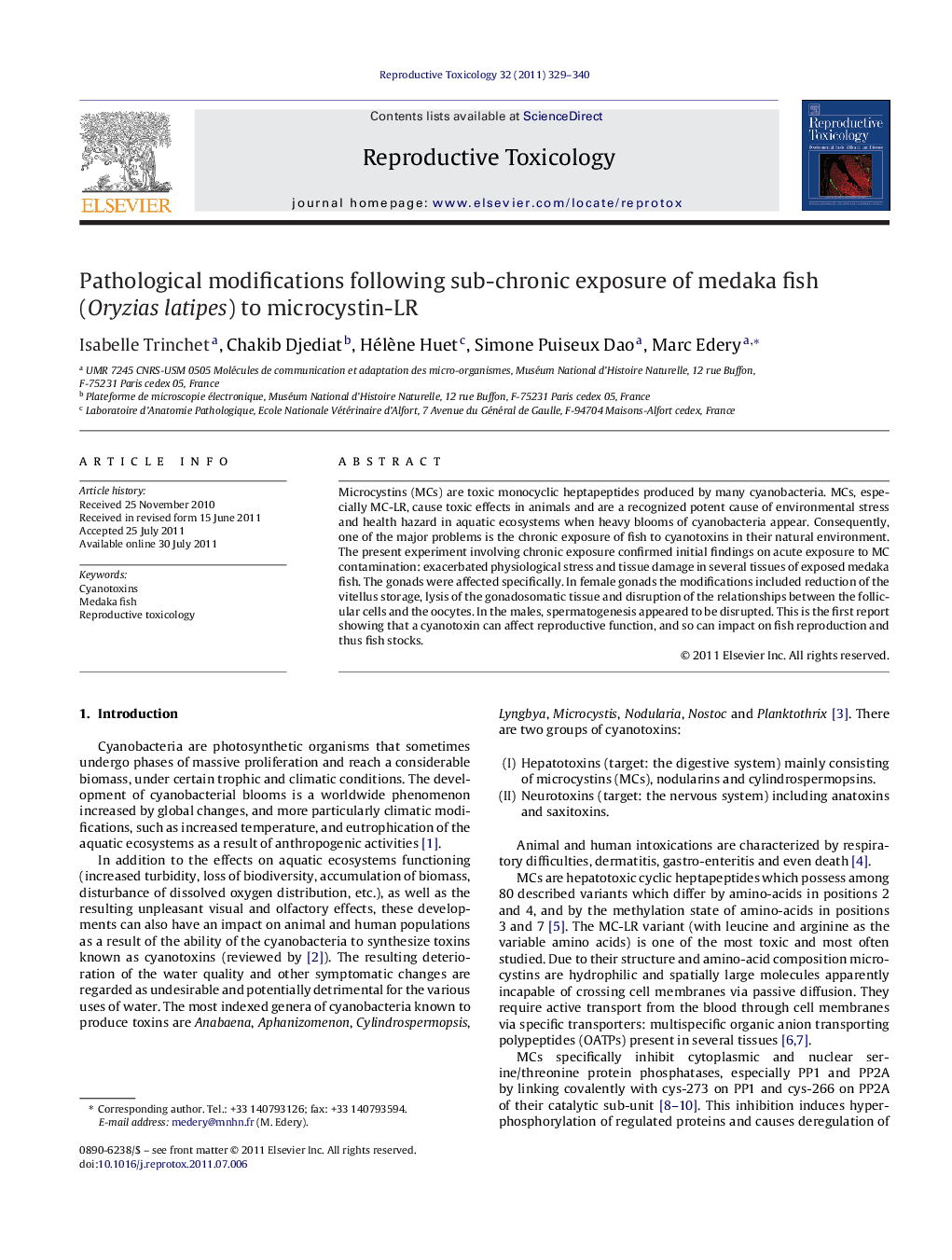| Article ID | Journal | Published Year | Pages | File Type |
|---|---|---|---|---|
| 2594028 | Reproductive Toxicology | 2011 | 12 Pages |
Microcystins (MCs) are toxic monocyclic heptapeptides produced by many cyanobacteria. MCs, especially MC-LR, cause toxic effects in animals and are a recognized potent cause of environmental stress and health hazard in aquatic ecosystems when heavy blooms of cyanobacteria appear. Consequently, one of the major problems is the chronic exposure of fish to cyanotoxins in their natural environment. The present experiment involving chronic exposure confirmed initial findings on acute exposure to MC contamination: exacerbated physiological stress and tissue damage in several tissues of exposed medaka fish. The gonads were affected specifically. In female gonads the modifications included reduction of the vitellus storage, lysis of the gonadosomatic tissue and disruption of the relationships between the follicular cells and the oocytes. In the males, spermatogenesis appeared to be disrupted. This is the first report showing that a cyanotoxin can affect reproductive function, and so can impact on fish reproduction and thus fish stocks.
► Exposure to the cyanotoxin microcystin induces histopathological modifications of the female and male gonads. ► In the males, spermatogenesis is disrupted. ► In the females reproduction is altered. ► Cyanotoxin affects reproductive function. ► Cyanotoxin can impact on fish reproduction and thus fish stocks.
